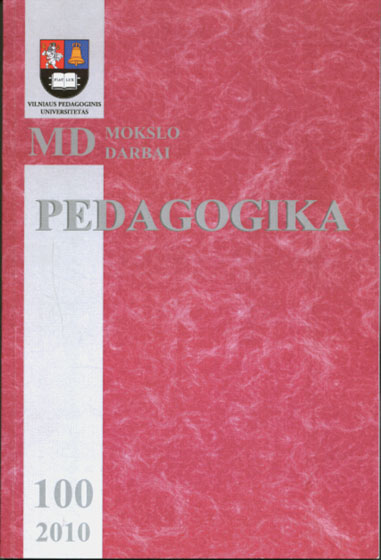Švietimo modernizavimas: gimnazijos kultūros kaitos kryptys
Modernising education: changes in the culture of gymnasia
Author(s): Rita DukynaitėSubject(s): Education
Published by: Vytauto Didžiojo Universitetas
Keywords: culture of gymnazia; organizational culture; change.
Summary/Abstract: The article analyses changes in the culture of gymnasia, including the formation of pro-active gymnasia, the influence of centralised decisionmaking on the changes taking place in gymnasia, models of education that have impact on the organisational culture of gymnasia as well as the culture reflected in the process of education and community microclimate. A gymnasium with a twofaceted goal, which is to take over and understand the knowledge, culture and traditions, including the provision of preconditions for the active, independent and creative young people to contribute to the development of a new stage in the life of the society by at the same time providing an environment encouraging individual personalities to unfold, faces a cultural challenge as an organisation, because it has to take care of both knowledge acquisition, taking over the existing culture and provision of a safe and cherishing psychological microclimate. As a result of centralised policy making, the gymnasia have only one strive, which is to do their best in meeting the needs of different children, to achieve maximum results and become schools of high cooperative culture with positive microclimate and qualified teachers, i.e. simply to be good and universal schools for all. The overall organisational culture index of the Lithuanian gymnasia that were surveyed is very close to that characteristic of a school of extremely high organisational culture, however, quite a number of the schools are in danger of ending up with a competitive interaction model that would downgrade the sense of community and thus limit the activities of the school subjects that consider the sense of community to be the key platform for their activities, which is rather likely in cases when there is no cooperation as a setoff to it.
Journal: Pedagogika
- Issue Year: 2010
- Issue No: 100
- Page Range: 85-94
- Page Count: 10
- Language: Lithuanian

